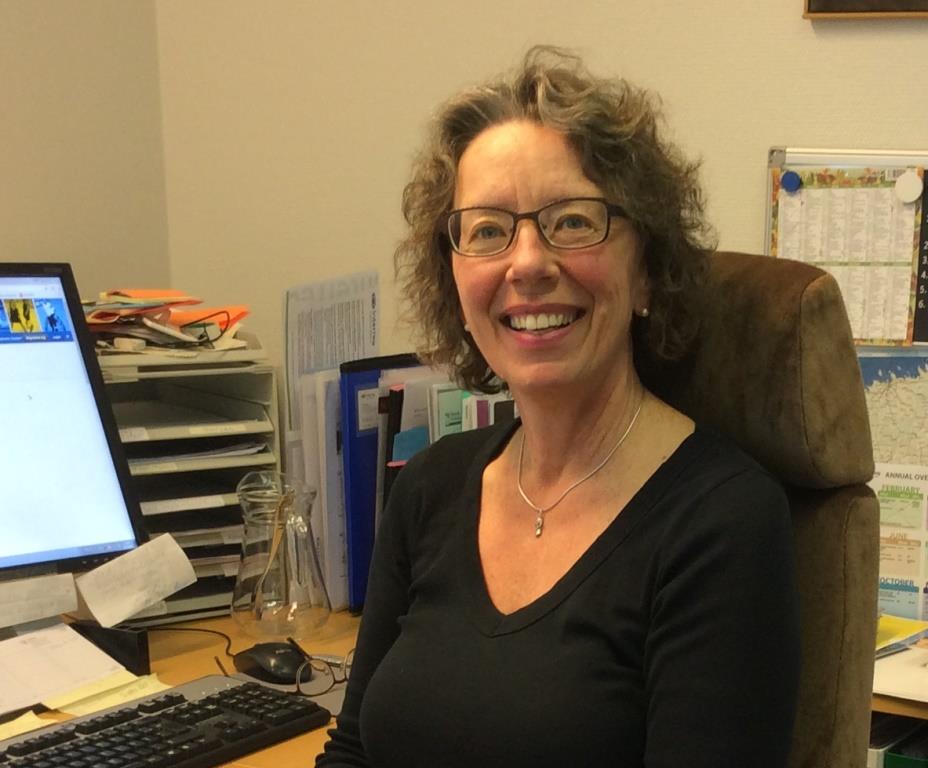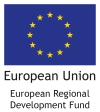In this mini-series, we introduce our national Contact Points from around the programme area. The national Contact Points are the link between the programme and the regions. They inform about the funding opportunities and provide first information to potential applicants. Contact Points also help with partner search and matchmaking. In addition, they follow projects closely to share/spread project results and communicate the benefits of cross-border cooperation.
Hi, my name is Ester Laurell (Miiros), and I located on the Åland Islands. I have been working as National Contact Point Åland for the Central Baltic Programme since August 2014, more or less “from the beginning” of this programme.
I was quite sceptical to CB, while working with other things. I had heard it was so bureaucratic and rigid. In May 2014 I was participating in a seminar in Stockholm, where the “new” programme was presented. And suddenly I sat there – listening to Annika Claesson and Hans Bjurbäck from Sweden, while they were presenting the new concept with national Contact Points – nodding. I said to myself: “Hmmm, I could be quite good at that… Hmmm. I think it could be really nice…”. The next Friday the announcement for Contact Point Åland was published in the local newspaper, and I sent in my application.
From being quite prejudiced, I found myself in the inspiring position of promoting the funding possibilities for good quality cross-border projects. And I felt immediately “at home” with the clear structure, the tasks, the result orientation, the teams involved in facilitating and promoting, the host organization and all the people with their questions and ideas.
I am proud of what the programme and all people involved have achieved so far, the ambitions, the struggle, the solutions, the results.
My working days vary depending on which phase the programme is in. During my 3,5 years, we have had five launch events, three calls, 417 applications, thousands of partners involved, a lot of seminars, meetings and trainings, and right now 97 approved projects.
When a call is in the pipeline, there is a lot of promoting, matchmaking, information, phone calls, chats, presentations, emails. My task is to inform, help, facilitate, find partners, promote, inform again, etc. I love this part of my job. I travel mostly in the archipelago region, as I have a special interest in the Archipelago & Islands sub programme. I love meeting people, listening to them, supporting them. My main goals are of course the same as for the programme: “To ensure the generation and quality of the cross-border cooperation projects” and “To attract wide interest towards the benefits of cross-border cooperation”.
When the hectic period of an open call is over, I have time to plan my activities and to follow “my” projects more closely, share their communication, do interviews, write about them and spread their results. I work pro-actively to promote the programme and develop my own skills in communication.
Part 2: Our national Contact Point in Finland - Jaakko Ranta
Part 3: Our national Contact Point in Latvia - Ilze Lezgdina
Ester Laurell
(2018)Hi, my name is Ester Laurell (Miiros), and I located on the Åland Islands. I have been working as National Contact Point Åland for the Central Baltic Programme since August 2014, more or less “from the beginning” of this programme.
 How did you end up working with Central Baltic?
How did you end up working with Central Baltic?
I was quite sceptical to CB, while working with other things. I had heard it was so bureaucratic and rigid. In May 2014 I was participating in a seminar in Stockholm, where the “new” programme was presented. And suddenly I sat there – listening to Annika Claesson and Hans Bjurbäck from Sweden, while they were presenting the new concept with national Contact Points – nodding. I said to myself: “Hmmm, I could be quite good at that… Hmmm. I think it could be really nice…”. The next Friday the announcement for Contact Point Åland was published in the local newspaper, and I sent in my application.From being quite prejudiced, I found myself in the inspiring position of promoting the funding possibilities for good quality cross-border projects. And I felt immediately “at home” with the clear structure, the tasks, the result orientation, the teams involved in facilitating and promoting, the host organization and all the people with their questions and ideas.
I am proud of what the programme and all people involved have achieved so far, the ambitions, the struggle, the solutions, the results.
What does a typical working day look like?
My working days at the office starts at 9 with opening the computer and checking the mails, the CB webpage, FB, LinkedIn, etc. Following what happens in different channels takes time. I also compile the programme (and project) media visibility found through the search engine Meltwater.My working days vary depending on which phase the programme is in. During my 3,5 years, we have had five launch events, three calls, 417 applications, thousands of partners involved, a lot of seminars, meetings and trainings, and right now 97 approved projects.
When a call is in the pipeline, there is a lot of promoting, matchmaking, information, phone calls, chats, presentations, emails. My task is to inform, help, facilitate, find partners, promote, inform again, etc. I love this part of my job. I travel mostly in the archipelago region, as I have a special interest in the Archipelago & Islands sub programme. I love meeting people, listening to them, supporting them. My main goals are of course the same as for the programme: “To ensure the generation and quality of the cross-border cooperation projects” and “To attract wide interest towards the benefits of cross-border cooperation”.
When the hectic period of an open call is over, I have time to plan my activities and to follow “my” projects more closely, share their communication, do interviews, write about them and spread their results. I work pro-actively to promote the programme and develop my own skills in communication.


